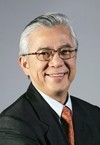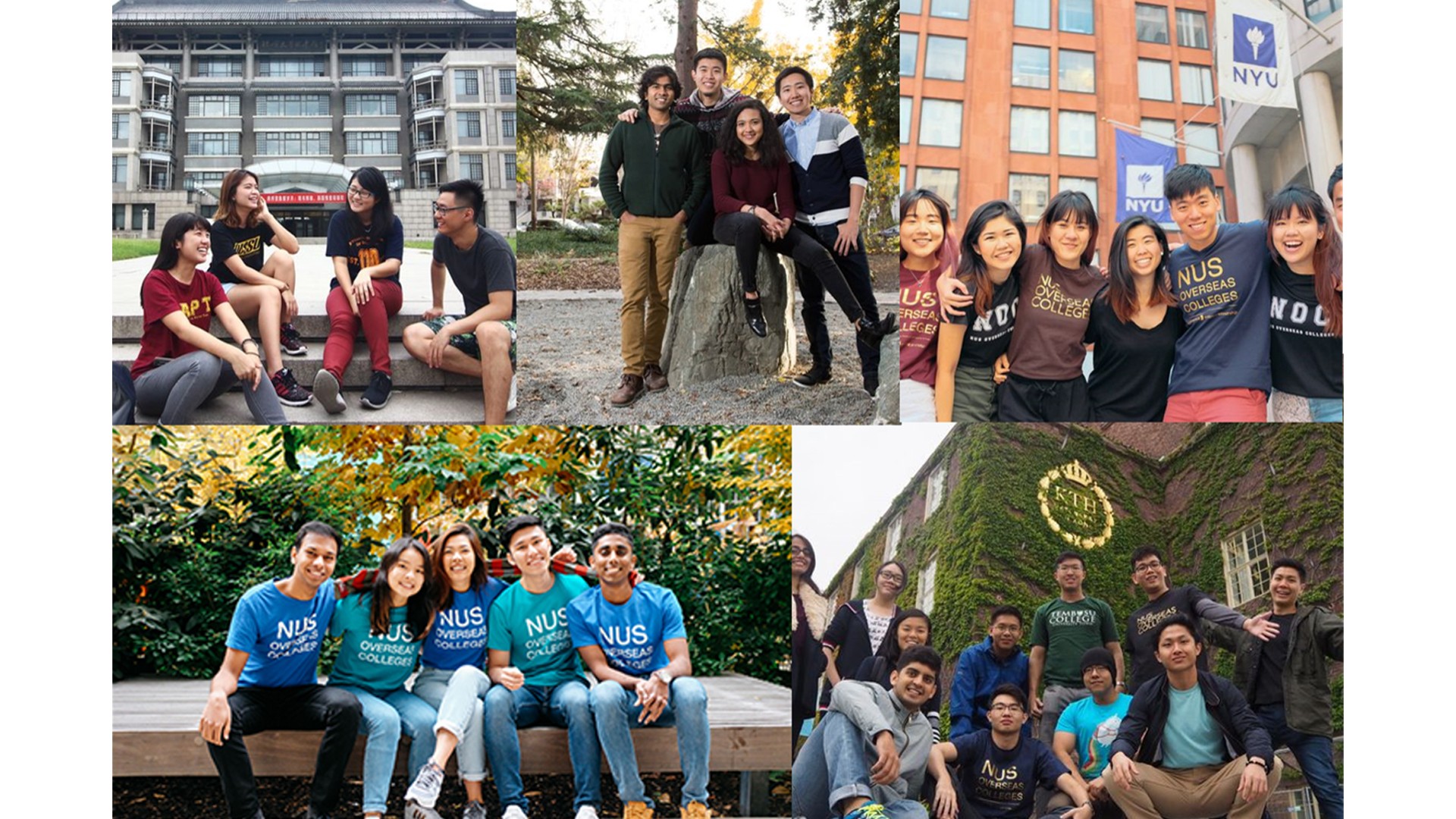Reflections on 20 years of NOC: Part 2 – The journey is truly the prize
A journey with kindred spirits and adventurous souls

The NUS Overseas Colleges (NOC) programme began in 2002 with 14 NUS students arriving in Silicon Valley. Today, it has more than 3,600 alumni, with over 15 entrepreneurial hubs established across the globe. Its founder, former NUS President Shih Choon Fong, looks back on how it all began in a three-part retrospective on its 20th anniversary.
NUS Enterprise was launched in mid-2001 and Jacob Phang served as the founding CEO from 2002 to 2006. The formation of the entity led by a CEO reporting directly to the NUS President caused some consternation. After all, names such as Enterprise and CEO were simply not in the lexicon of universities then.
The first initiative under NUS Enterprise was the NUS Overseas Colleges (NOC) in Silicon Valley and that was the reason I was in North America around that fateful day in September 2001 – to review some aspects of an MOU with Stanford University.
NOC was a start-up like no other. We knew we had to begin with the adventurous young, to inspire entrepreneurship in them with the experience of a lifetime through internships with entrepreneurs and founder-entrepreneurs in the capitals of tech start-ups. The college would target students who demonstrate both academic ability and entrepreneurial drive. Our aim was for these students to develop into enterprising, resourceful, independent self-starters and eventually blossom into successful entrepreneurs.
In 2000, the very best of the young in Singapore were being nurtured in programmes at the Ivy League and Oxbridge. But what was needed then was to nurture a different group of young people, like those at NUS, who had gumption, enthusiasm, and derring-do, who would go to where the action was in 2000 – Silicon Valley. They needed an opportunity to feel and smell the place, to take the measure of their global peers. They needed to be immersed in the excitement of entrepreneurship. We believed our students could and would rise to the occasion.
But hurdles and challenges abounded. In 2000, the NUS academic social culture and its organisational work practices couldn’t be more different from Stanford and Silicon Valley. The NUS community, including students, was accustomed to life in a highly efficient and orderly city-state where things run predictably and smoothly for everyone. Those were also the days when our students aspired to work in multinational corporations or the civil service upon graduation. Now we were taking these students out of their comfort zones and thrusting them into Silicon Valley, where things neither worked predictably nor smoothly and in a culture where the young would rather start something of their own than work for others.
What was envisioned was an initiative never been done before, an audacious radical idea deemed too foolhardy by some to see the light of day. Because it was never done before, internal and external stakeholders were sceptical – the initiative was too costly and ill-conceived … it was not going to fly. How do we know if it works, some asked? What are the metrics for success or for calling it quits? I had no good answers.
However, I felt bold steps were needed for change to happen. My heart told me this was the way to go … I resolved to bring the idea to life.
How do we bring the idea to life?
So how would we bring the idea to life? We had no rule book to follow. We had to start somewhere. We jumped into the deep end, we learned through trial and error, and we made the rules as we went along.
It was like building, retrofitting and piloting a first-of-its-kind plane while in mid-air. The runway was bumpy and there were headwinds and turbulence. But there was no turning back. The plane had to take off.
And I knew exactly who I wanted to pilot the plane. Jacob was a kindred spirit and I was confident that he could bring the idea to life. I was not disappointed – with Jacob in charge, the initiative took flight. He was assisted by co-pilot Teo Chee Leong, a professor at the Faculty of Engineering, who had spent years in the San Francisco Bay Area while pursuing his PhD studies at Berkeley and hence was familiar with Silicon Valley.
The first flight reached the capital of dreamers, entrepreneurs and start-ups in January 2002. On board were 10 of our own dreamers. The next four dreamers followed within months. Chee Leong, who was entrusted by Jacob to be the founding director of NOC and to carry out the vision Jacob and I had, recalled: "NOC had been an incredible, exhilarating journey. It was like flying into a storm and if not for the steadfast hands of Jacob and support from Prof Shih, the NOC plane would have crashed!"
A key feature of NOC was a 12-month overseas internship in tech hotspots. NOC interns would be placed in newly-established start-ups since they would give the interns access and opportunities to learn directly from founder-entrepreneurs. Moreover, interns were paid an appropriate salary so that they would be assigned meaningful tasks. And during the internship, the students would take entrepreneurship modules at partner universities and earn academic credits towards graduation.
Convincing the deans of faculties and schools to allow their students to spend 12 months in an untested programme and earn academic credits for graduation was an uphill battle. In the end, we created the NUS Entrepreneurship Centre (NEC), a new teaching unit with Wong Poh Kam, a Massachusetts Institute of Technology PhD and professor at NUS Business School, as the founding director. With NEC in place, Poh Kam developed the entrepreneurship curriculum with our partner universities. And through NEC, NOC students were able to receive academic credits for their internship training and entrepreneurship courses taken at our overseas partner universities.
This was but one of the many hurdles and challenges along the journey.
After giving five unstinting years of bold and steadfast service, Jacob stepped down from NUS Enterprise to focus on his academic work and SEMICAPS, a leading semiconductor design-debug analysis equipment manufacturer spun off from NUS. Jacob was succeeded by Lily Chan in February 2006. A PhD from the Medical Center of the University of Illinois Chicago, Lily had spent eight years in the venture capital industry as managing director of investment at Bio One Capital. A talented manager, Lily provided astute leadership, leveraging on her network in the public and private sectors and relationships with investors, entrepreneurs and corporate executives to step up the NUS Enterprise agenda. With the keen eyes and swift wings of an eagle, Lily more than doubled the number of NOC locations. With foresight and diligence, Lily built BLOCK71 into one of Asia’s most dynamic start-up ecosystems.
Global minds and Singapore hearts
It has been my hope the NOC students would develop for themselves an enterprising curiosity, a resilience towards failure, a sense of adventure and most of all, a global mind and a Singapore heart.
Mr S. Rajaratnam, one of the nation’s founding fathers, was the quintessential global mind with a Singapore heart. He envisioned Singapore as a global city that sees the world as its hinterland. Beyond infrastructural progress, he believed that Singapore's development as a global city hinged on its people adopting a global perspective. Born in Sri Lanka and raised in then Malaya, Mr Rajaratnam's heart was with Singapore. He said: "If you think of yourself as Chinese, Malays, Indians and Sri Lankans, then Singapore will collapse. You must think of Singapore: ‘This is my country’." In essence, Mr Rajaratnam advocated that Singaporeans be globally minded and courageous in venturing beyond the waters of the island-state while still having a heart for home.
Let me offer a metaphor for the global citizen – my story of the intrepid Atlantic salmon.
The magnificent Atlantic salmon has thrived in the Northern Hemisphere for more than 100 million years. These salmon begin life in inland freshwater lakes and rivers, where they grow and hone their survival skills, before starting on their journey to the Atlantic Ocean. The vast ocean is rich and offers boundless space for their growth. In the ocean, the Atlantic salmon doubles in size every year. The larger, tougher, more mature salmon return to their original inland waterway time and again during their lifespan to spawn, thus ensuring the survival and renewal of the species. (This makes the Atlantic salmon different from the Pacific salmon, which dies after spawning once.)
Time and again, I have reflected on the Atlantic salmon metaphor for NUS students, particularly NOC students who have had the privilege of swimming and growing in the oceans of the world. The "NUS salmon" can thrive in the warm waters of Singapore. From the confluence of the Indian Ocean and the South China Sea, the "NUS salmon" are prepared to venture out boldly to work, live and play, be it in Singapore or anywhere else. While the "NUS salmon" serve the community and society wherever they may be, NUS and Singapore remain in their hearts. They return again and again to renew and contribute “back to the source”, to the community. The essence of our salmon metaphor is to think global and act global, while identifying closely with NUS and Singapore.
To the many who have gone through the NOC programme, I say: Continue to expand your horizons, see opportunities and possibilities beyond the immediate geographic and cultural boundaries, but know there’s a place called home.
Let global minds and Singapore hearts energise you in the journey of life.
To be continued in Part 3: Re-envisioning entrepreneurship
About the author
 University Professor Shih Choon Fong was President of NUS and its Vice Chancellor from 2000 to 2008. Over his almost nine years as President, he led NUS' transformation into a research-intensive university respected in the global arena. He has also served as the Founding President of the King Abdullah University of Science and Technology from 2008 to 2013. A Harvard University graduate and a renowned fracture mechanics expert, he has been listed by the Institute for Scientific Information as one of the world's most highly cited engineering researchers. He led the Association of Pacific Rim Universities for four years and was awarded the Centennial Medal by Harvard University’s Graduate School of Arts and Sciences in 2018.
University Professor Shih Choon Fong was President of NUS and its Vice Chancellor from 2000 to 2008. Over his almost nine years as President, he led NUS' transformation into a research-intensive university respected in the global arena. He has also served as the Founding President of the King Abdullah University of Science and Technology from 2008 to 2013. A Harvard University graduate and a renowned fracture mechanics expert, he has been listed by the Institute for Scientific Information as one of the world's most highly cited engineering researchers. He led the Association of Pacific Rim Universities for four years and was awarded the Centennial Medal by Harvard University’s Graduate School of Arts and Sciences in 2018.




